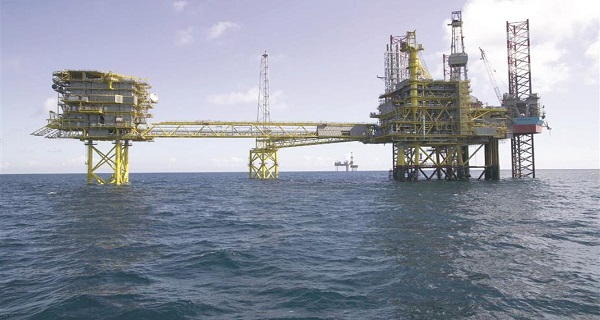Lebanon moves to oil exploration stage
Walid Khadduri/The Arab Weekly/January 15/17
Approval of decrees ends more than two years of gridlock among politicians on how to proceed with Lebanon’s first-round bidding process.
Beirut – The Lebanese government has agreed, after nearly three years of delay, to approve two decrees. The first delineates five blocks to be put on offer for oil and gas exploration. The second establishes the working model to be used — a hybrid production-sharing contract (PSC).
The approval of the decrees ended more than two years of gridlock among politicians on how to proceed with the Lebanon’s first-round bidding process. The delay cost Lebanon opportunities, as neighbouring Cyprus and Israel made discoveries, attracted major international oil companies (IOCs) in the case of Cyprus and the start of domestic production in Israel as well as the signing of sales and purchase contracts with regional countries.
The delay in Lebanon raised an outcry among the public concerning corruption. This outcry was reiterated — by two Democratic Alliance ministers, led by the Druze political leader Walid Jumblatt — during the cabinet’s meeting that approved the two decrees.
The breakthrough was reached as a result of an agreement among the country’s sectarian leaders in late 2016 for Michel Aoun to become president and Saad Hariri prime minister.
Pre-qualified firms were selected in 2015 to take part in the first-round bidding. The list includes major IOCs that showed interest due to the blocks’ potential. Lebanon commissioned international firms to conduct 2D and 3D seismic surveys in its Exclusive Economic Zone (EEZ) waters. The results showed positive prospects.
ExxonMobil, Chevron and Anadarko (the United States), Shell (Britain/Netherlands), Total (France), Inpex (Japan), Statoil (Norway), Repsol (Spain), Mersk (Denmark), Petrobras (Brazil), Petronas (Malaysia) and Eni (Italy) are among the companies pre-qualified.
The final selection is to take place in the last quarter of this year. It is not clear how many of the firms are still interested in operating in Lebanon, particularly after the decline in oil prices. Several firms (Exxon Mobil, Total and Eni) are taking a regional interest in the eastern Mediterranean, having expressed interest in operating in both Cyprus and Lebanon.
The gas process in Lebanon, however, faces more difficult challenges. The maritime borders — north with Syria and south with Israel — are not demarcated. The border with Israel poses a particular problem as the countries are formally at war. Demarcating the marine border with Syria is not easy either, as it must await the end of the conflict there and the development of better relations between the two countries.
Lebanon has not signed joint field development agreements with its marine neighbours. The accords set rules and procedures to develop fields that straddle the waters of multiple countries.
Both Cyprus and Israel launched bids during 2016. Israel has discovered around 1.1 trillion cubic metres (tcm) of gas in ten fields and started production from the Tamar field in April 2013. Cyprus has discovered one field, Aphrodite, with about 140 billion cubic metres (bcm) of gas reserves.
In the latest bid rounds announced by the two countries last year, Cyprus succeeded in attracting Exxon Mobil, Qatar Petroleum, Eni and Total for southern blocks.
Eni discovered a major field, Zohr, last August in northern Egyptian waters, only 5km south of Cypriot waters. The projections are that the structure could extend into the southern Cypriot waters, hence the IOCs’ interest in blocks bordering the Zohr discovery.
Israel has two tasks during 2017. The first is to see to it that the operating companies — local Israeli firms and Houston-based Noble Energy — receive sufficient credit facilities from international banks to develop the giant Leviathan field. A sales and purchase agreement has been signed with Jordan’s National Power Company for gas supplies over a long-term period.
The second challenge for Israel is attracting IOCs to participate in gas exploration and development. About 24 blocks were opened to bidding last August and interest was expressed by several firms.
Major exploration work in Israel, has been undertaken by Noble Energy, in partnership with local Israeli firms, principally the Delek Group.
Israel gas development slowed in 2015 and 2016 because of a legal battle between the Anti-Monopoly Commission and the operating companies. The former argued that Noble and its partners discovered all the offshore gas fields so far, creating a monopoly that gives them the upper hand in determining future gas prices and hence power prices to the detriment of the Israeli consumer. The companies argued that the commission was acting contrary to the agreement that they had signed with Israel. The dispute, though having been settled, scared the IOCs.
The 24-block opening is to assist in further exploration in Israel and create a more positive relationship with the IOCs.
**Walid Khadduri is an Iraqi writer on energy affairs based in Beirut.




















